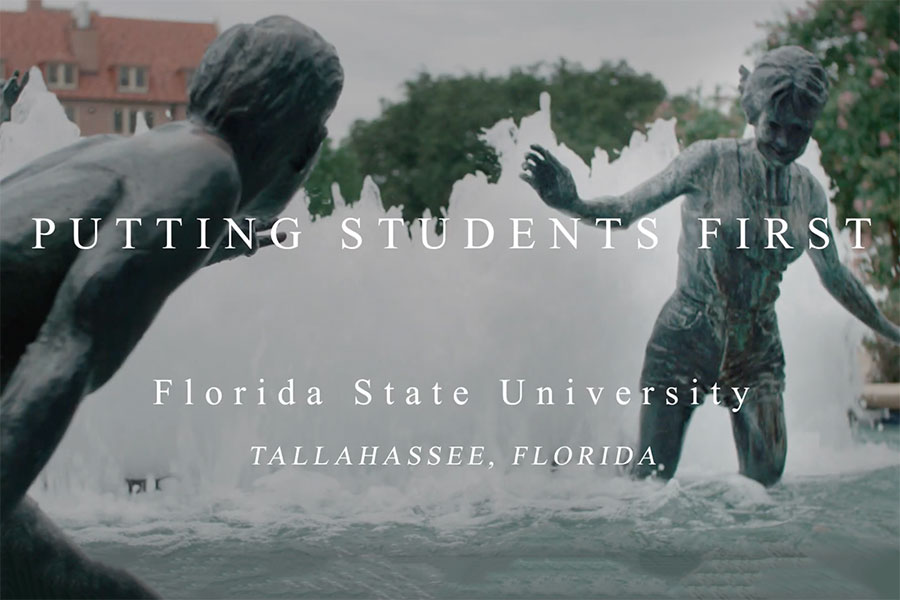
Florida State University’s student success initiatives are showcased as a national model for increasing completion rates and reducing inequities in a video released by the American Academy of Arts & Sciences.
The video highlighting FSU is one of three videos focused on the national priorities set forth by the Academy’s Commission on the Future of Undergraduate Education: quality, completion and affordability.
The video — produced with a grant from the TIAA Institute — highlights Florida State’s commitment to retention and completion, which has resulted in high graduation rates for students from all backgrounds, including those who were formerly homeless, in foster care or first-generation college students.
“I’m very proud of this,” said Provost and Executive Vice President for Academic Affairs Sally McRorie. “It’s a good representation of who we are as a university and what we hold dear.”
Florida State’s four-year graduation rate of 72 percent ranks among the Top 10 public universities in the country and is No. 1 in Florida.
Of the freshmen who entered the university in 2014, 72 percent graduated in four years. By comparison, 49 percent of freshmen who started at FSU in 2005 graduated in four years. Florida State’s six-year graduation rate has steadily risen to 83 percent, and the university’s first-year retention rate has climbed to 94 percent.
Most notably, Florida State has eliminated disparities in graduation and retention rates among its diverse undergraduate population, which includes nearly a third who are Pell Grant recipients and first-generation college students.
The video highlights FSU’s approach to tackling this issue, led by its Enrollment Management Taskforce. For the past 20 years, the group of about 20 administrators from all facets of campus has met every two weeks to discuss the university’s strategic investments in areas such as tutoring and academic advising and coaching.
Programs such as the Center for Academic Retention and Enhancement (CARE) and Unconquered Scholars also were featured in the video. CARE provides first-generation students with the necessary tools, resources and support network they need to flourish in the collegiate environment, while Unconquered Scholars offers support services to students who have experienced foster care, homelessness, relative care or ward of the state status.
“One of the reasons we’ve been successful with our graduation rates is that we recognize that some of our first-generation students thrive with extra support,” McRorie said.
Cornell University and Cincinnati State Technical and Community College are the other institutions featured in the academy’s videos.
“The success of our democracy and our economy depends on the ability of colleges and universities to meet the challenge of providing students with the education they need at a cost they can afford,” said David W. Oxtoby, the president of the American Academy of Arts and Sciences and the former president of Pomona College. “The Academy is committed to reaching the broadest range of institutions and audiences possible with both the challenges and solutions.”
The work of the Commission on the Future of Undergraduate Education, including these videos, has been generously supported by a grant from the Carnegie Corporation of New York.
The videos are online, along with more information about the Commission on the Future of Undergraduate Education and the national priorities for undergraduate education, at www.amacad.org/undergrad.




